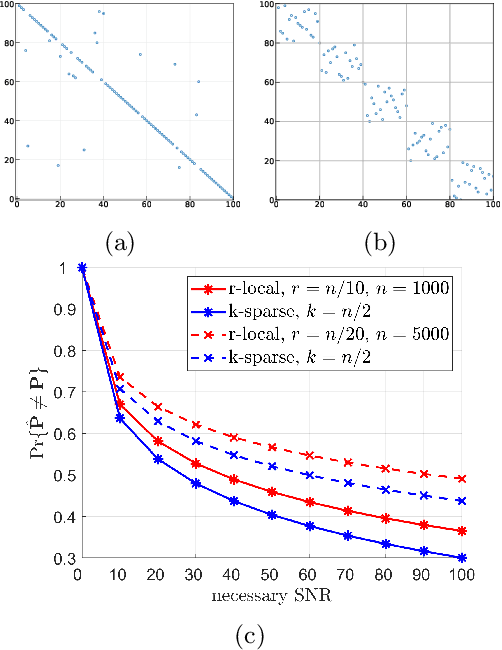r-local sensing: Improved algorithm and applications
Paper and Code
Nov 16, 2021


The unlabeled sensing problem is to solve a noisy linear system of equations under unknown permutation of the measurements. We study a particular case of the problem where the permutations are restricted to be r-local, i.e. the permutation matrix is block diagonal with r x r blocks. Assuming a Gaussian measurement matrix, we argue that the r-local permutation model is more challenging compared to a recent sparse permutation model. We propose a proximal alternating minimization algorithm for the general unlabeled sensing problem that provably converges to a first order stationary point. Applied to the r-local model, we show that the resulting algorithm is efficient. We validate the algorithm on synthetic and real datasets. We also formulate the 1-d unassigned distance geometry problem as an unlabeled sensing problem with a structured measurement matrix.
 Add to Chrome
Add to Chrome Add to Firefox
Add to Firefox Add to Edge
Add to Edge